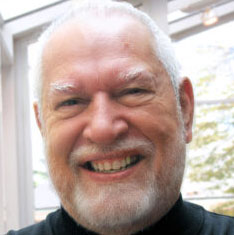In his weekly clinical update Dr. Griffin discusses Influenza incidence and vaccine effectiveness during the southern hemisphere influenza season in Chile, Nirsevimab for prevention of RSV infection in healthy late-preterm and term infants, severe Monkeypox in hospitalized patients, reinfections with different SARS-CoV-2 Omicron subvariants, impact of community masking on COVID-19 in Bangladesh, unadjuvanted intranasal spike vaccine elicits protective mucosal immunity against sarbecoviruses, antibody responses to Omicron BA.4/BA.5 bivalent mRNA vaccine booster shot, immunogenicity of bivalent mRNA vaccine boosters, long-term gastrointestinal sequelae following COVID-19, evaluation of an automated text message–based program to reduce use of acute health care resources after hospital discharge, and how in adults with COVID-19, melatonin was assessed for effects on inflammatory markers, clinical signs and symptoms, and mortality.
In his weekly clinical update Dr. Griffin discusses progress toward poliomyelitis eradication in Pakistan, polio by the numbers , influenza and COVID-19 vaccination coverage among health care personnel, phase 1/2a safety and immunogenicity of an adenovirus 26 vector RSV vaccine encoding prefusion F in adults 18–50 years and RSV seropositive children 12–24 months, receipt of first and second doses of JYNNEOS vaccine for prevention of Monkeypox, distinguishing SARS-CoV-2 persistence and reinfection, Novavax NVX-COV2373 triggers potent neutralization of Omicron sub-lineages, association between regular physical activity and the protective effect of vaccination against SARS-CoV-2 in a South African case, COVID-19 outcomes in solid organ transplant recipients who received Tixagevimab-cilgavimab Prophylaxis and/or Bebtelovimab treatment, Omicron sublineage BA.2.75.2 exhibits extensive escape from neutralizing antibodies, and Tocilizumab versus Baricitinib in hospitalized patients with severe COVID-19.
In his weekly clinical update Dr. Griffin discusses the prediction of upcoming global infection burden of influenza seasons after relaxation of public health and social measures during the COVID-19 pandemic, severe COVID-19 outcomes after full vaccination of primary schedule and initial boosters, and how successful immunomodulators for treatment of COVID-19 have opened the pathway for comparative trials.
In his weekly clinical update Dr. Griffin discusses a healthcare-associated infection with Monkeypox virus, air and surface sampling for monkeypox virus in a UK hospital, misrepresentation and nonadherence regarding COVID19 public health measures, tolerability and immunogenicity of an intranasally-administered adenovirus-vectored COVID-19 vaccine, clinical, virologic, and immunologic evaluation of symptomatic rebound following Nirmatrelvir/Ritonavir treatment, early outpatient treatment with Eemdesivir in patients at high risk for severe COVID-19, Molnupiravir plus usual care versus usual care alone as early treatment for adults with COVID-19 at increased risk of adverse outcomes, and outcomes among confirmed cases and a matched comparison group in the long-COVID in Scotland.
In his weekly clinical update Dr. Griffin discusses high points of the multi-national monkeypox outbreaks, monkeypox virus genome mutations, possible occupational infection of healthcare workers with monkeypox virus, rates of monkeypox cases by vaccination status, protection of SARS-CoV-2 infection against reinfection, Paxlovid significantly reduces COVID-19 hospitalizations and deaths, and rebound in COVID19 with and without Paxlovid treatment.
Paul Offit returns to TWiV for a discussion of SARS-CoV-2 bivalent boosters containing ancestral and Omicron spike mRNAs, including their composition, why they are being recommended by CDC, and who would benefit the most from them.
In his weekly clinical update Dr. Griffin discusses increased acute respiratory illnesses among children and adolescents, estimates of monkeypox incubation period, generation time, and reproduction number, rapid increase in suspected SARS-CoV-2 reinfections, interim infection prevention and control recommendations for healthcare personnel during COVID-19, SARS-CoV-2 secondary attack rates in vaccinated and unvaccinated household contacts during replacement of delta with omicron variant, breakthrough infection by SARS-CoV-2 delta and omicron variants elicited immune response comparable to mRNA booster vaccination, interval between prior SARS-CoV-2 infection and booster vaccination impacts magnitude and quality of antibody and B cell responses, further humoral immunity evasion of emerging SARS-CoV-2 BA.4 and BA.5 subvariants, short-course early outpatient Remdesivir prevents severe disease due to COVID-19 in organ transplant recipients during the Omicron BA.2 wave, effectiveness of Molnupiravir in high risk patients, and primary care and a distinct symptom pattern for long COVID.
In his weekly clinical update Dr. Griffin reviews the public health response to poliovirus in New York, impact of mandatory influenza vaccination, monkeypox in a young infant, health care worker exposure to monkeypox virus, monkeypox testing delays, transmission potential of monkeypox virus, TPOXX trial for monkeypox, detection of SARS-CoV-2 subgenomic mRNA, mucosal IgA against SARS-CoV-2, BNT262b2 against Omicron, awareness and use of SARS-CoV-2 antivirals, comparable outcomes for Bebtelovimab and Nirmatrelvir, and COVID-19 and Alzheimer’s disease.
In his weekly clinical update Dr. Griffin discusses detection of a highly divergent type 3 vaccine-derived poliovirus in a child with a severe primary immunodeficiency disorder, severe respiratory illnesses associated with rhinoviruses and/or enteroviruses including EV-D68, effects of vaccination and previous infection on Omicron infections in children, COVID-19-associated hospitalizations among vaccinated and unvaccinated adults 18 years or older in 13 US states, effectiveness of COVID-19 vaccines over time prior to Omicron emergence in Ontario, Canada, nasal IgA wanes 9 months after hospitalization with COVID-19 and is not induced by subsequent vaccination, resistance of SARS-CoV-2 Omicron subvariant BA.4.6 to antibody neutralization, persistent circulating SARS-CoV-2 spike associated with post-acute COVID-19 sequelae, and impact of COVID-19 vaccination on the risk of developing long-covid and on existing long-covid symptoms.
In his weekly clinical update Dr. Griffin discusses variant influenza virus infections: recommendations for identification, treatment, and prevention for summer and fall 2022, low levels of monkeypox virus neutralizing antibodies after MVA-BN vaccination in healthy individuals, using the right tools at the right time for SARS-COV-2 infection, onset and window of SARS-COV-2 infectiousness and temporal correlation with symptom onset, transmission of SARS-COV-2: a review of viral, host, and environmental factors, antibody persistence and safety through 6 months after heterologous orally aerosolized Ad5-nCoV in individuals primed with two-dose vaccine, timely administration of tocilizumab improves outcome of hospitalized COVID-19 patients, administration of anti–SARS-COV-2 monoclonal antibodies after US Food and Drug Administration deauthorization, and clinical and genetic risk factors for acute incident venous thromboembolism in ambulatory patients with COVID-19.





